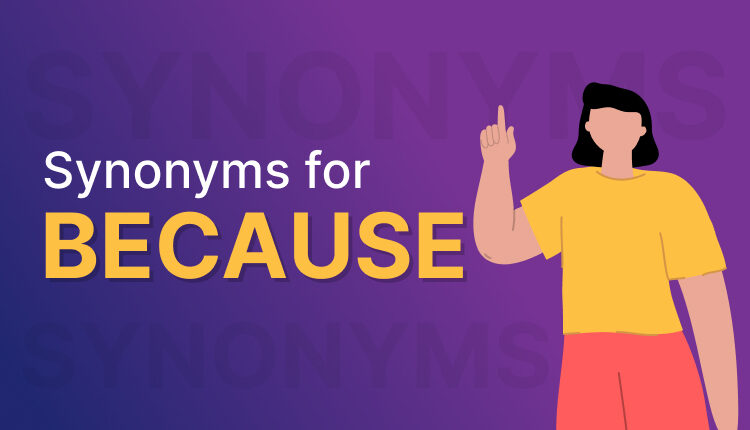Words shape us. They shape our minds and speech. Among them, the word “because” plays a key role in connecting ideas and thoughts. But have you ever tried to enhance your language?
Exploring synonyms for “because” can add depth to your writing—whether you’re crafting an essay, telling a story, or chatting with friends—helping you avoid repetition and keep your words engaging. Let’s dive into some powerful alternatives to “because” that not only enrich your dialogue but also make it more compelling.
What does because mean?
Because is a conjunction that connects ideas and offers reasons. It introduces an explanation or reasons given for actions, thoughts, or statements. In order to connect two clauses, it helps to explain their relationship.
For example, in the sentence “She studied hard because she wanted to pass,” the word answers why she did the hard work. This simple word is just indispensable for effective communication in speech and writing because it clearly expresses rationale and sense. Knowing its role should make our ability to communicate complex ideas simply shine through.
How do we say “because”?
Using “because” alternatives can make your writing that much clearer while bringing it to life. Using a mix of expressions will keep your reader’s interest piqued and allow the meaning to be much more subtle.
To this end, you could use words and phrases like “due to,” “as a result of,” or “owing to.” These words are all more specific than the general wording used in. You could also use “since” or “for the reason that” because those words will work well in certain sentences without changing the meaning of the sentence.
Synonyms of because with examples
Here are synonyms for “because” that can enrich your writing.
“Since” is often used to indicate a reason, as in “I stayed home since it was raining.” Another option is “as,” such as in the sentence, “She was late as she missed the bus.”
You may try “because of” in “He succeeded because of hard work.” Try “for” in sentences like, “They celebrated for they had completed the project.” Also, you might use “given that,” “as much as,” and many more. With each of these synonyms, you give a different flavor to your sentences!
Why do you need a synonym?
With diverse word usage, you make your writing more vibrant and engaging. This keeps the reader interested and prevents your content from becoming monotonous. When you have a diverse vocabulary, you invite readers to connect with your ideas on a deeper level.
Finally, using synonyms allows for the subtle expression of meaning. Different words carry unique connotations that can shift the tone of a phrase. By choosing the right words, you ensure clarity while expressing emotion or intention with precision, enhancing overall expression.
Trinka grammar checker helps you choose the best synonyms for your context, ensuring that your writing stays clear and impactful. It also provides suggestions to refine tone and improve word choice effortlessly.
FAQs on Synonyms for because
Since finding synonyms for “because” raises questions naturally, here are some of the most commonly asked queries that might aid you as you learn.
FAQ's
Some common substitutes include "since," "as," and "due to." Each of these can be useful in various situations.
Yes. Substitutes add variety, which keeps your reader's interest while also adding clarity.
Absolutely. For example, "due to" is commonly used in formal writing, while "since" works better in everyday tones of discourse.
Not if you are careful. But the potential for overusing them is high, since it's easy to rely exclusively on a tool. Absolutely. While variety is the spice of life, too much variety can confuse the reader or dilute the message you want to get across.
Consider what is appropriate to your subject, tone, and context. In some words, there is also just a hint of difference in connotation and formality.

